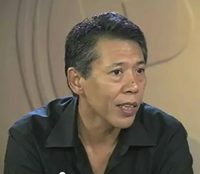SUMMARY
This is AI generated summarization, which may have errors. For context, always refer to the full article.
 Legalese – an obscure language, based on Latin (and hopefully destined for the same fate), which lawyers use to prevent laymen from understanding what they’re being charged with and for. (White’s Law Dictionary)
Legalese – an obscure language, based on Latin (and hopefully destined for the same fate), which lawyers use to prevent laymen from understanding what they’re being charged with and for. (White’s Law Dictionary)
Watching the impeachment trial has made me realize 3 things about my profession: we love legalese, we’re too legalistic, and we don’t know when to stop talking.
Lawyers have a peculiar language. We use words that only lawyers (and no one else in the entire universe) understand. We are addicted to our wherefore’s, thereof’s and hereby’s. We would rather say inter alia instead of among others, and anent instead of about. And we have a tendency to make everything — even the simplest statement — sound complicated. Just read any Supreme Court decision and you’ll know what I mean.
Or better yet, open your TV set, close your eyes, listen to the lawyers argue, and be reminded of the adage, “Whatever you are speaking so loudly, I cannot hear what you are saying.”
We not only love our legalese—we also love being legalistic. To paraphrase White’s Law Dictionary, we object on some ground like hearsay when our real purpose is to stop the truth “from creeping into the courtroom.” We raise technicalities just to muddle the issues and obscure the merits of a case. And we deny everything to death.
Most of us also talk too much. We use 50 words when 5 will do, we talk in circles, and we don’t know when to stop.
But our inability to speak goes far beyond effective communication. Our use of legalese has far-reaching consequences. Legalese makes it difficult, if not impossible, for ordinary people to understand what we are saying. Our special lingo keeps it all in the family, by ensuring that only members of the bar can participate in the conversation. This only reinforces the public’s perception of the bar as an “old boy’s network.”
Which brings me to some unsolicited advice to the impeachment lawyers, and to all my companeros y companeras:
- Communicate effectively.
- Argue with heart.
- Don’t talk to impress or to show off your vocabulary.
Communicate effectively. “Speak simply, so that every word will be clear and easy to understand.” While St John Baptist de La Salle wrote these words in the context of the teacher’s vocation, they are equally true for lawyers since we are, in many ways, teachers. The impeachment lawyers and judges, especially, should heed these words because the people are watching and learning about the legal system from them. Public opinion, moreover, can affect the outcome of an impeachment trial. The lawyers, therefore, should strive to communicate their message in ways that the public can easily understand.
Argue with heart. ”Reason,” according to Gregory the Great, ”opposes evil the more effectively when anger ministers at her side.” As the good trial lawyers know, it is not enough to appeal to a judge’s sense of logic. To be persuasive we must make the judge want to rule in our favor, by appealing to the judge’s sense of fairness and justice.
Don’t talk to impress or to show off your vocabulary. Our love for legalese often makes us show off our vocabulary when we are in court. As I often tell my law students, lawyers are advocates, not walking dictionaries. Our job is to persuade, not to impress.
* * *
Quotable quotes
“I was with you, Mr. Scott—until I heard your argument.” [Lord Thurlow. 1 Twiss, Life of Lord Eldon (1844 ed.) 135.]
“He was a bad lawyer,” said O’Connell, “but he was the most sensible looking man talking nonsense I ever saw.” [Daniel O’Connell, referring to Lord Manners, in Burke, History of Lord Chancellors of Ireland (1879) 203]
“Praise be he who can state a cause in a clear, simple and succinct manner—and then stop.” [Belt, J., Jungwirth v. Jungwirth, 115 Ore 668, 672 (1925)]
“The greatest difficulty of the trial lawyer is to forget that he is making a speech…. [T]he mode of today is towards conversational oratory with a conversational manner that must be natural….” [ Generoso V. Jacinto, An Introduction to Trial Technique and Practice (1982)]
“In law. the right answer usually depends on putting the right question.” [Frankfurter, J. (1943)]
“I used to say that, as Solicitor General, I made three arguments of every case. First came the one that I planned—as I thought, logical, coherent, complete. Second was the one actually presented—interrupted, incoherent, disjointed, disappointing. The third was the utterly devastating argument that I thought of after going to bed that night.” [Robert H. Jackson] – Rappler.com
Add a comment
How does this make you feel?
There are no comments yet. Add your comment to start the conversation.